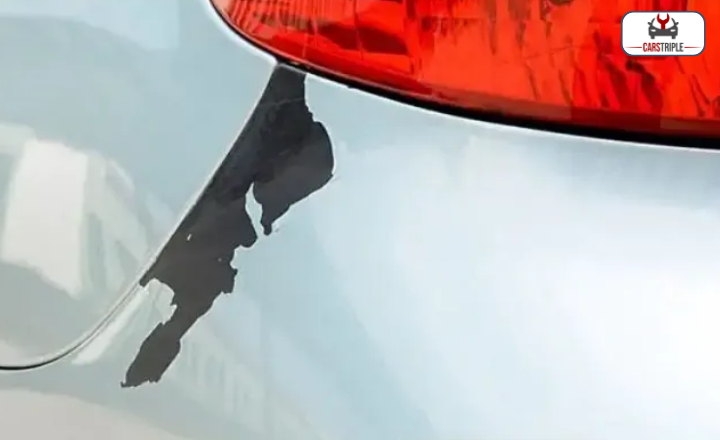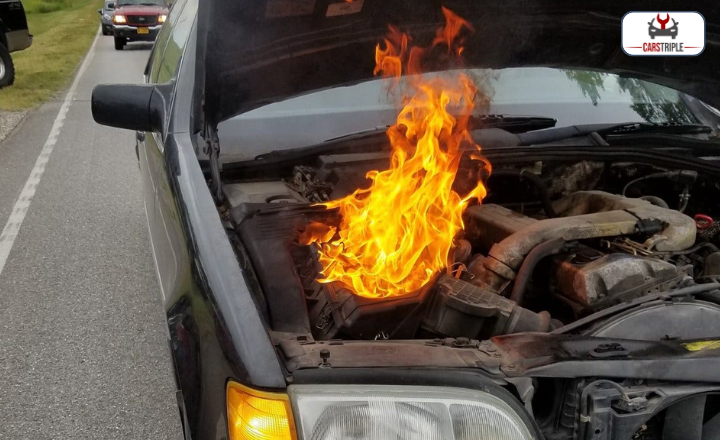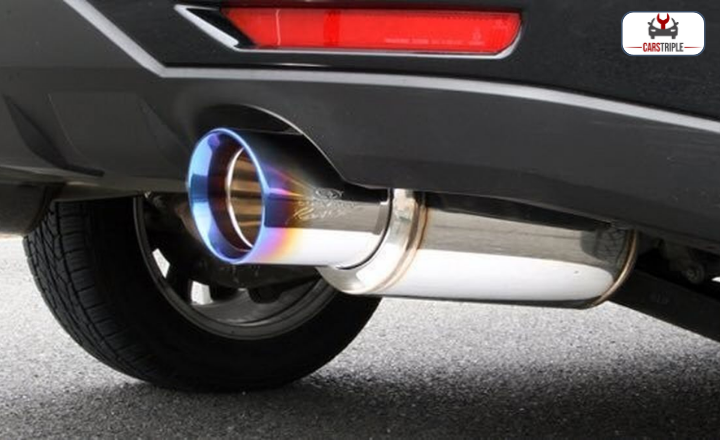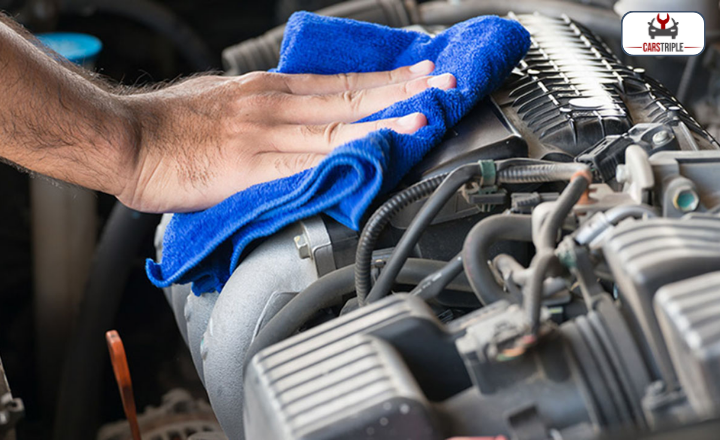If you have a car, you might deal with oil leaks sometimes. These leaks can be bothersome or harmful to your car’s engine. It’s a plot twist nobody ever wants to encounter, but it happens more often than we wish. Only some understand why these leaks occur or the problems they can create for a machine.
So get ready, and dive into the complex topic of Oil Spilled On Engine! We aim to unravel this oily problem by discussing potential damages, prevention methods, and straightforward solutions. We’ve crafted the content in easy-to-understand language for your convenience.
Is Oil Spilled On Engine Bad?
There are many reasons why the engine can get seriously damaged.
Fire Hazard
Oil is prone to ignite quickly, particularly when it comes into contact with heated parts of an engine. This is because the heat from the engine can raise the oil’s temperature to its ignition point, potentially causing a fire. But there’s a risk involved; most engines are built to manage hot oil without any problems.
The real issue arises when there are oil leaks or spills. These mishaps could allow the oil to reach heated areas of the engine it’s not supposed to, leading to a possible fire hazard.
Smoke and Odor
When oil unintentionally drips onto an engine, it could result in a noticeable burning smell. This scent comes when the engine gets hot and evaporates the extra oil. The smoke and odor that is produced can be robust and not very pleasant.

But what is even more significant is that this scenario can potentially harm your health. Breathing in these gases might lead to breathing problems, especially for those already suffering from lung issues. Exposure to these gases for a long time could also cause certain lung diseases.
Engine Damage
Oil spills can seriously harm different parts of an engine. This happens when oil leaks onto seals and gaskets, slowly wearing them down. As these parts wear out, more oil leaks might occur. The engine could stop working entirely if these leaks aren’t fixed quickly.
It also drops in the overall performance of the engine. Oil is essential because it helps keep the engine’s moving parts lubricated, reducing friction and heat. When there’s a leak or spill, and less oil is available for lubrication, these parts might wear out faster due to extra friction and heat.
Environmental Impacts
The oil leak is like one from an engine and can badly affect the environment. The extra oil might soak into the ground or grass. This could dirty the water underground and hurt animals living nearby. The oil can harm plants and make life challenging for bugs and tiny organisms that help keep soil healthy. It is also hard for nature to break down oil.
This means it stays around for a long time, causing problems like fire risk, especially when it’s dry and oily, and plants could catch fire easily. These bad things can also get into rivers or lakes when it rains, harming fish and other water creatures.
What Happens If You Spill Oil On Your Engine?
Car problems can happen when the engine oil leaks.
It damages the engine’s paint
Oil has the potential to harm the paint or sealers on an engine. This happens because many oils have chemicals that negatively interact with paint, causing changes in color, flaking, or even rust over time.

Sealers shield the engine’s inside parts from outside elements like dirt and water. But when oil touches these sealers, their ability to guard can lessen. Cleaning any oil spills on the engine wholly and quickly is crucial to stop this from happening.
It can attract dirt and debris
Dirt and debris can stick to an engine if oil spills exist. This dirt can create many problems, like making the engine run less efficiently and even causing it to break down. It can get into different engine parts, like gears or moving parts, and make them wear out too soon.
Oil also helps keep the engine cool by spreading out heat, but when it’s dirty, it doesn’t do this either, and the engine may get too hot. All these problems could make the engine run poorly and be dangerous for the person driving because the engine could stop working unexpectedly while going.
It can lead to fire

Oil is a risk for fire. A spark or too much heat can make it catch fire and start a bigger one. This is worrying when we talk about engines because they usually get very hot. Engines that are getting too hot have a high chance of their oil catching fire. When this happens inside a machine, it might explode, which is dangerous.
The serpentine belt can come off
The serpentine belt is a vital part of your car’s engine. Oil can make it slippery and cause it to fall off because there’s less grip. This can suddenly stop power steering, alternator charging, and the cooling system from working correctly. Your car might get too hot or become hard to control, which is dangerous for everyone inside. Checking your engine for oil leaks often and ensuring the serpentine belt is clean and tight is very important.
Can Oil Spilled On Engine Cause A Fire?
Oil leaking from an engine can cause fires due to various reasons.
Oil is a flammable substance
Oil can easily catch fire because it’s made mostly of hydrocarbons. These chemicals can quickly mix with oxygen and start a fire. This is why an engine running hot can set oil on fire if there’s a spill inside. To stop this from happening, it’s essential to take good care of your car and always look for possible oil leaks.
Engines have electrical components
There are a lot of electrical parts in today’s engines. One of these parts is the spark plug, which lights up to start the engine. Sometimes, this can cause sparks. These sparks might light up spilled oil or fuel and start a fire in the engine bay.
You don’t need to worry too much about this. It only happens sometimes because cars are made to be safe. Engines are built to handle their heat and any sparks they might make. They also have sections that keep fluids away from hot or sparking parts.
The hot exhaust systems of the vehicle

Your car’s exhaust system can get hot, and that’s good. It needs the heat to work properly. This heat pushes out the engine’s foul gases and makes the engine warm up faster, which helps save fuel. But be careful. Oil or anything else that burns can catch fire if they touch these hot parts.
Will Oil Spilled On The Engine Burn Off?
When oil spills on an engine, it can catch fire. This can happen when the engine gets hot and touches the spilled oil. You might smell something burning or see smoke from under the hood. These are clues that the oil is on fire.
Remember, not all of the spilled oil might catch fire. Smoke from burning fat can also hurt people and nature. Staying near it for an extended period could harm your health. Also, this smoke isn’t beneficial for other creatures in the environment.
What Do You Put In Spilled Engine Oil?
Immediate action is needed when oil spills occur. Quickly cover the spill with a dry, absorbent cloth. A cotton or microfiber cloth is ideal as it can soak up a lot of oil and prevent it from spreading. Clean the engine thoroughly with a degreaser once you’ve mopped up as much oil as possible.

Spray the degreaser over the spilled area and leave it for a few minutes to dissolve the oil. After that, take another clean, dry cloth to wipe off the degreaser and any remaining oil. Repeat this process until all the oil is gone. Remember to responsibly dispose of any used fabrics or materials to avoid damaging the environment.
How do you clean spilled oil from an engine?
When engine oil spills, you need to follow these steps.
Absorb the Oil
Start cleaning an oil spill using a cloth or rag that can absorb oil. This way, the material can suck up a lot of oil, which means there’s less to clean up afterward. Once you’ve mopped up as much oil as possible with the cloth, remember to throw it away correctly because it’s now a dangerous waste.
Local rules will tell you how to do this. After that, carry on cleaning up. You could use soap, water, or a degreaser for small spills or get experts if the fall is significant.
Sweep Up the Oil Properties
First, use a cloth or rag to clean up as much oil as possible. But don’t worry if some oil still sticks around. To eliminate this, you’ll need something with bristles, like an old toothbrush or broom. These can reach tiny spaces that a cloth can’t. Just ensure it’s an old one you’re okay with getting messy. And remember to throw away any greasy rags or brushes to keep things safe and fire-free once you’re done.
Clean The Entire Area That Has Been Spilled
If oil spills in a particular area, you can clean it effectively using dish soap and water. Dish soap can break down grease and oil, making it ideal for such jobs. It would help to scrub the whole area to remove any remaining oil.
Rinse it with water to remove any leftover soap and dislodged oil bits. It’s crucial to rinse off all the soap because it can harm some materials if left on for too long. Dry the area with a towel to soak up any remaining moisture and stop rust or corrosion from happening. By following this process, your engine will look clean without any traces of oil residue.
Dispose Of The Waste Properly
It’s essential to get rid of oil-drenched clothes the right way. This helps our environment and stops dangers like fires. You said it right: a recycling center is a great place to take them. These places know how to deal with this kind of waste safely. And remember, many car mechanics and repair shops can also accept used oil and oily materials. They usually work with recycling businesses that are experts in dealing with this kind of waste.
Conclusion
Oil Spilled On Engine is a serious issue that needs immediate attention. This leak might cause minor problems, like your car failing. More severe risks include the engine catching fire or completely breaking down. Therefore, it’s essential to have a professional mechanic inspect any oil leaks as soon as possible to prevent further damage. Remember, maintaining your car isn’t just about ensuring it works properly. It’s also about guaranteeing your safety and extending the lifespan of your vehicle. Please don’t risk it: have your engine examined immediately when you suspect an oil leak.
FAQ’s
What could happen if oil spills on my car’s engine?
Oil spillage on the engine could cause smoking, unexpected smells, or even a fire under extreme circumstances.
Is the smell from an oil-spilled engine harmful?
The smell itself isn’t directly harmful but may indicate a severe issue like burning oil which needs immediate attention.
